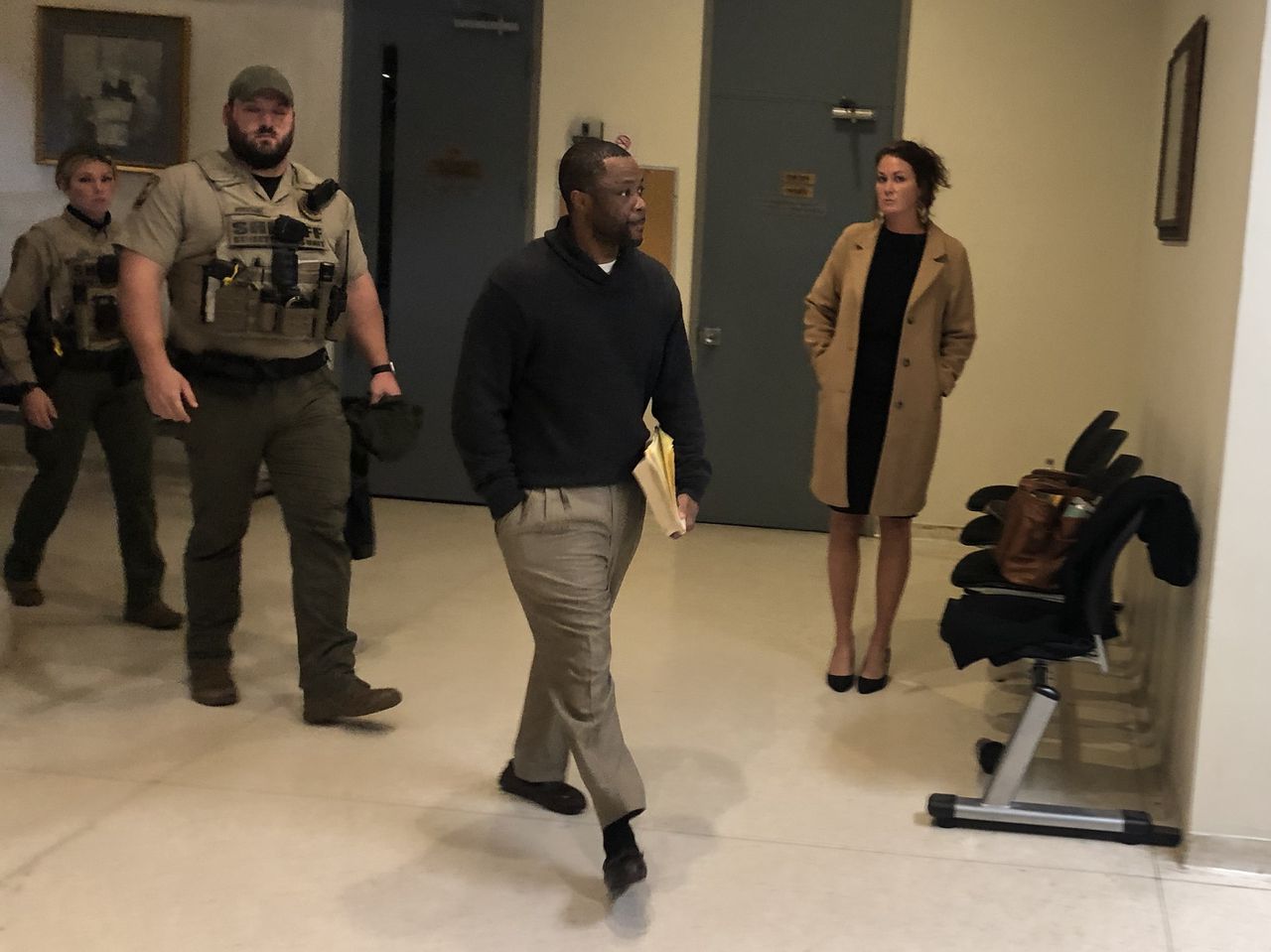Capital murder conviction in jeopardy for Huntsville cop killer
The conviction for capital murder in the 2019 fatal shooting of Huntsville police officer Billy Clardy III is in jeopardy Friday morning after the jury said it could not agree on a sentence.
If the jury is unable to reach a sentence – either the death penalty or life in prison without parole – a mistrial would be declared and the case would have to be tried again against LaJeromeny Brown.
Madison County Circuit Judge Chris Comer gave the jury what’s known as the “dynamite charge” or “Allen charge,” strongly encouraging the jury to work to reach a decision. The judge told the jury that the conviction would be dismissed if they are unable to reach a sentence and that no future jury would have more evidence or information to make a decision that they do.
The judge also urged jurors to remove sympathy, emotion or speculation from their deliberations. And that jurors should back up their opinions with facts of the case and be willing to listen to and consider the opinions of other jurors.
Asked by the judge during a brief hearing, the jury foreman said the jury is deadlocked on the sentence. At least 10 of the 12 jurors must vote for the death penalty for it to be imposed. For life in prison without parole, at least seven jurors must vote for that sentence. The jury foreman said the jury had taken “many votes” in the note to the judge that asked for instructions on how to proceed.
Comer sent the jury back to the jury room to resume deliberations.
After the jury departed, defense attorney Eric Wood asked the judge to declare a mistrial but could not site convincing precedent to warrant such a declaration. The judge immediately denied the motion.
The jury is into its third full day of deliberation on the sentence, which Alabama law requires the jury to reach in a capital murder conviction trial. The jury is the final word on a sentence after a 2017 law removed the right for trial judges to overrule the jury’s recommendation.
During the first day of sentence deliberation on Wednesday, the jury asked Comer to review instructions on non-automatic aggravators in the case. Prosecutors presented three non-automatic aggravators that, if the jury agreed, would lead to a sentence of death for Brown.
Before the judge brought the jury back into the courtroom, Deputy District Attorney Tim Gann said that if the jury was stuck on an aggravator, prosecutors would remove that aggravator from consideration in an effort to break the stalemate. But the jury foreman told the judge that the issue was the sentence itself, not an aggravator. Given that was the case, it removed a possible solution to help the jury make a decision.
Brown shot and killed Clardy on Dec. 6, 2019, during an undercover drug operation at an abandoned house on Levert Street in north Huntsville. Brown fled the scene after the shooting but was apprehended by other undercover agents minutes later.
Brown acknowledged on the witness stand that he shot Clardy. He expressed remorse for the shooting and apologized to Clardy’s family. Prosecutors in closing arguments expressed skepticism over the sincerity of Brown’s apology.
The jury is in its second week of service after being empaneled Oct. 24. Jurors were required to report for duty on Oct. 16 and attorneys took about a week selecting the jury.
Got questions about Huntsville? Use this form to Ask the Lede.
